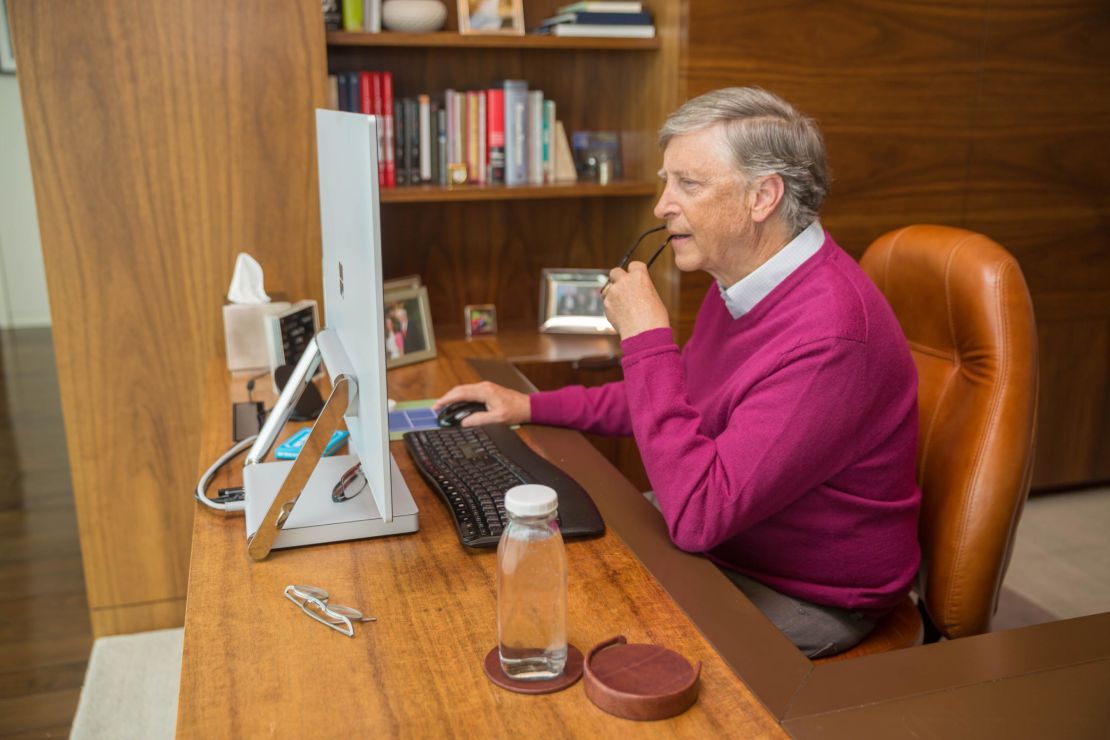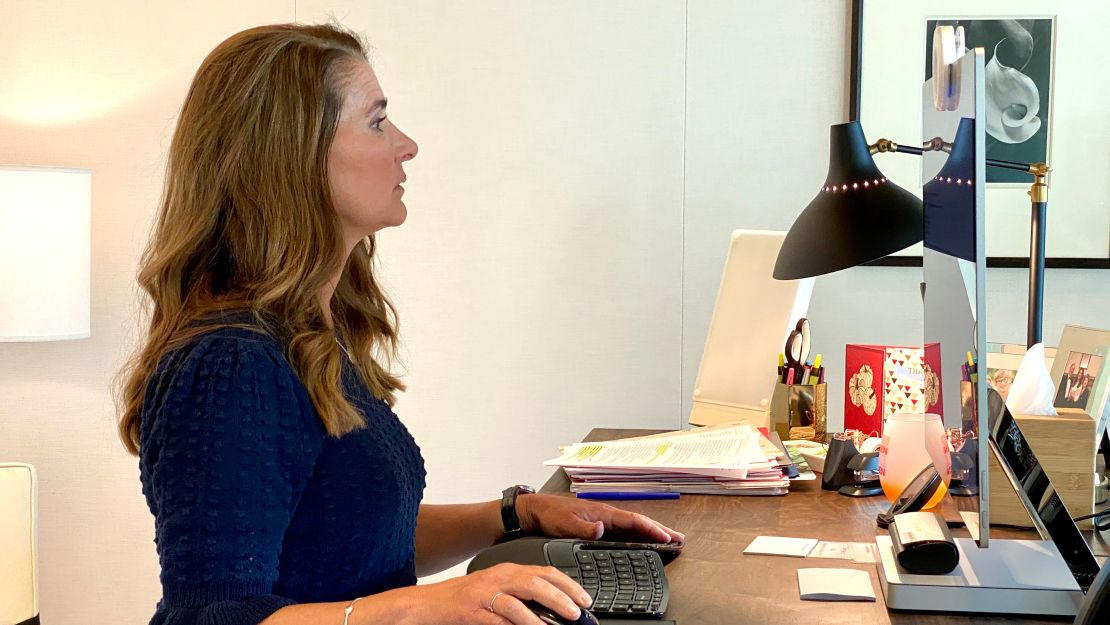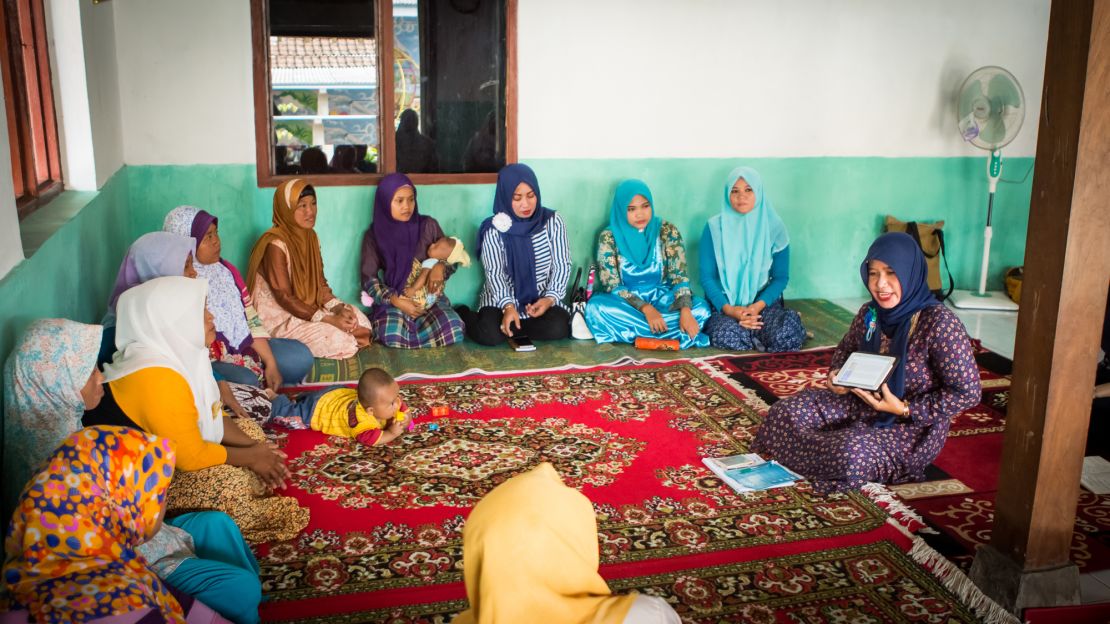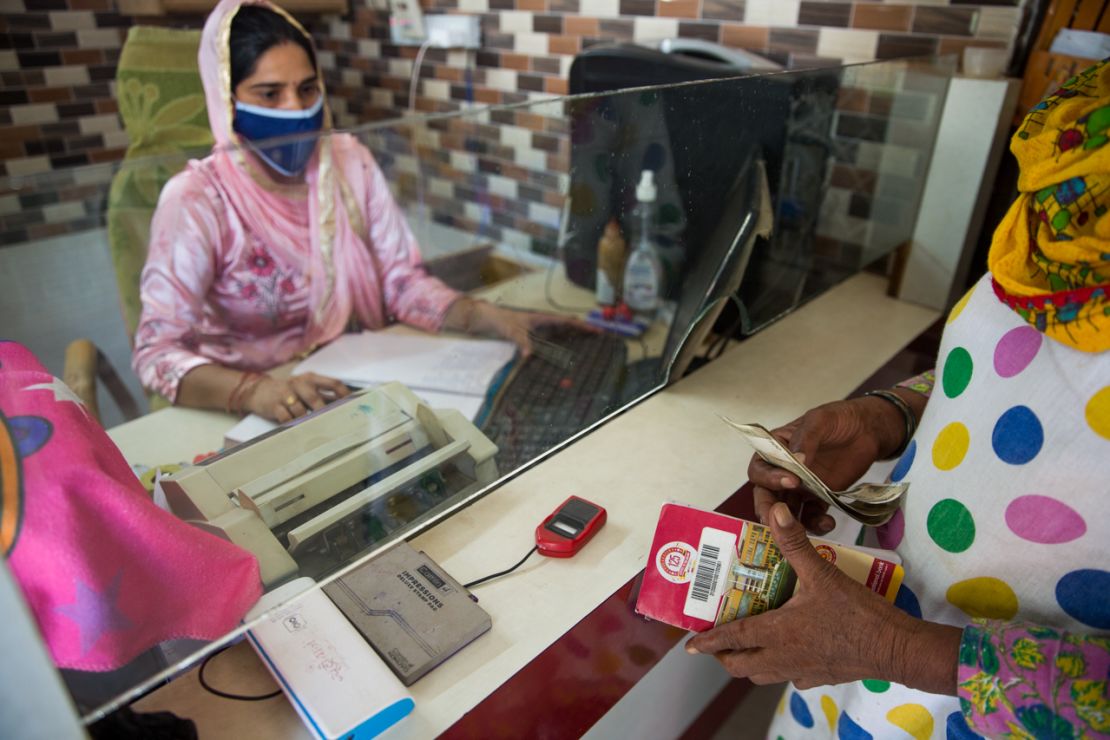Editor’s Note: The authors are co-chairs of the Bill & Melinda Gates Foundation. This article is adapted from their 2021 Annual Letter. The views expressed here are those of the authors. View more opinion on CNN.
At this time last year, the world was just starting to understand how serious a novel coronavirus pandemic could get.
Only a few weeks after we first heard the word “Covid-19,” we were closing our foundation’s offices and joining billions of people worldwide in adjusting to radically different ways of living. For us, the days became a blur of video meetings, startling news alerts, and microwaved meals — and we are well aware of how lucky we are compared to others. Over the past year, Covid-19 has killed over two million people worldwide, sickened millions more, and thrust the global economy into a devastating recession.

The experience of living through a pandemic has driven home what many people in developing countries knew all too well already: Health is the bedrock of any thriving society. If your health is compromised — or if you’re worried about catching a deadly disease — it’s hard to concentrate on anything else. Staying alive and well becomes your priority to the necessary detriment of all other things.
If you live in a wealthy country like the United States, chances are that last year was the first time an infectious disease has upended your life. That’s because in high-income countries infectious diseases are no longer what epidemiologists would call “a meaningful health burden.” In low-income countries, however, infectious diseases like malaria and tuberculosis are still major killers and adjusting life to account for a highly contagious pathogen is unfortunately nothing new. (Just ask the millions of people who sleep under a bed net each night.)

But in 2020, a virus that had no regard for borders or geography upended lives all over the world, collapsing some of those distinctions between rich countries and poor countries. In doing so, it brought new meaning to the term “global health.”
In the past, “global health” was rarely used to mean the health of everyone, everywhere. Instead, “global health” was a term that people in rich countries used to refer to the health of people in non-rich countries — essentially a synonym for “developing country health.” If you attended a global health conference any time in the last decade, you were much more likely to hear about diseases in Uganda than diseases in the United States.

This past year, though, that changed. In 2020, global health went local. We all saw firsthand how quickly a disease you’ve never heard of in a place you may have never been can become a public health emergency right in your own backyard. Viruses like Covid-19 remind us that, for all our differences, everyone in this world is connected by a microscopic network of germs and particles — and that, like it or not, we’re all in this together.
Although history will probably remember these as the darkest days of the pandemic, hope is finally on the horizon. It’s possible that by the time you read this, you or someone you know may have already received a Covid-19 vaccine. The fact that these vaccines are already becoming available is, we think, pretty remarkable — and all credit is due to the largest public health effort the world has ever seen. No one country or company could have achieved this alone: Funders around the world pooled resources, competitors shared research findings, and everyone involved had a head start thanks to many years of global investment in technologies that have helped unlock a new era in vaccine development.

Of course, developing safe and effective vaccines is only the beginning of the story. Now, the world has to get those doses out to everyone who needs them — in high-income and low-income countries alike. Until vaccines reach everyone, new clusters of disease will keep popping up all over the world, and lives will continue to be lost. That’s why we were glad to see the United States include $4 billion for Gavi, the Vaccine Alliance, in its latest Covid-19 relief package. Gavi will play a key role is distributing vaccines to low-and-middle-income countries — and smart policymakers understand that we can’t defeat Covid-19 until we defeat it everywhere.
The two of us are optimistic that the pandemic the world is living through right now will lead to a long-term change in the way people think about global health. Going forward, we hope that rich countries will have a deeper understanding that improving health in low-income countries not only saves lives overseas but also puts us in a better position to defeat the next set of global challenges.
Just as World War II was the defining event for our parents’ generation, the coronavirus pandemic we are living through right now will define ours. And just as World War II led to greater cooperation between countries to protect the peace and prioritize the common good, we think that the world has an important opportunity to turn the hard-won lessons of this pandemic into a healthier, more equal future for all.
